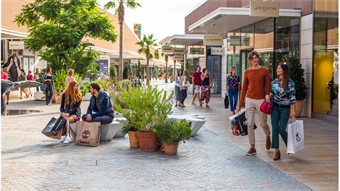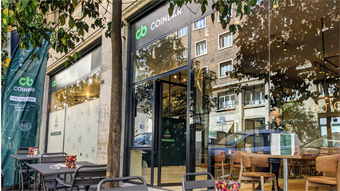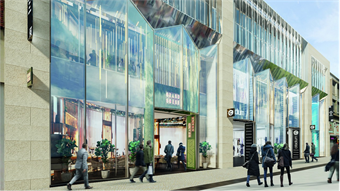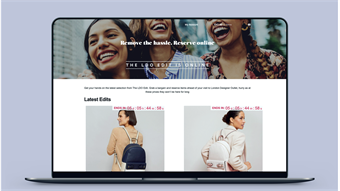Furla has expansion in the bag
- In Interviews
- 00:00, 19 april 2017
- 6732 Views
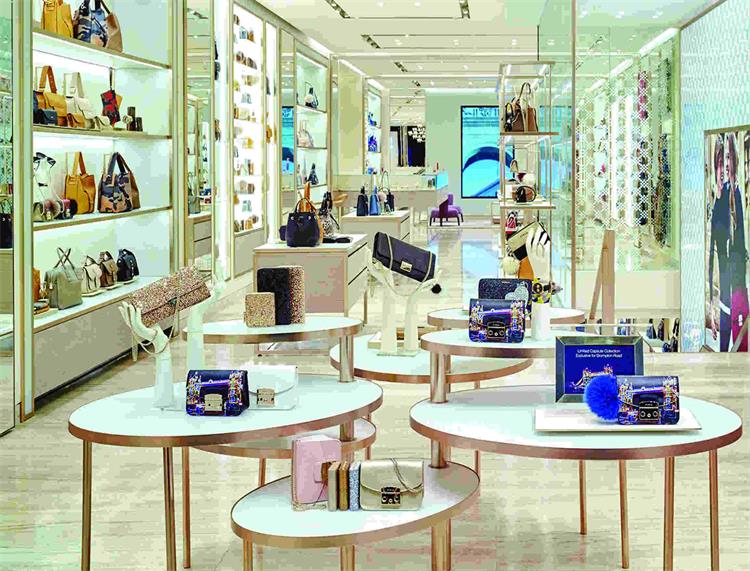
The growth of Italian luxury leather goods brand Furla is rooted in creative design and technology. Now this innovative company is planning strategic growth.
There is a light and beauty about the new Furla store at 71 Brompton Road in the smartest retail area of London that lifts the spirits as customers step into its warmth from the miserable English drizzle.
The Italian company Furla, which has been making luxury leather handbags, footwear and accessories for 90 years, opened its second UK store in London just in time for Christmas 2016: 280 m2 of retail delight across two floors. Judging by the number of customers coming
in and out of the store at the end of January, a month many retailers look upon with dread, it has gone down very well.
Furla sits in a niche luxury space: under Hermes but well above the fashion handbag sector and its president, Giovanna Furlanetto, feels happy with the price point. ‘I like the idea that a woman can buy a Hermes bag and a Furla bag, but a woman who can’t afford a Hermes bag can still buy the quality and design which a Furla bag offers.’
Global player
While Furla is undoubtedly one of the major global players in the luxury leather goods market, Furlanetto strives for the quality of its goods to be more widely appreciated.
On the face of it, she has little to worry about. The Furla brand is already available in 100 countries around the world, with 420 monobrand stores, located in some of the world’s most renowned international shopping streets (location is everything), with well over 1,200 shopin-
shops and an online boutique.
The brand is very strong in Asia, with Japan – where Furla was an early entrant – responsible for 26% of the brand’s sales globally, second only to its home country of Italy. It is planning to open its first store in Amsterdam and a second in Vienna this year too. More shops are planned in Istanbul, Turkey and in Russia this year, along with growth across Asia.
Furla’s pace of growth has speeded up significantly since Giovanna, who is the daughter of founder Aldo Furlanetto, became president in 1989. Furlanetto describes the company’s growth as cautiously aggressive. ‘With decades of experience in design and production, and because we are a private company with no debt, we could expand reasonably fast,’ she says.
But in a global world, a successful brand must expand. Furla is growing, but to seize its moment, the company needs an even more aggressive strategy. ‘You have to be everywhere,’ she notes. ‘So we decided that our roots are deep enough to speed up the growth of the company even further.’
IPO to fund expansion
Deep roots are essential, to be sure, but to secure the investment it needs for global expansion, the company is considering an IPO. Last May it issued a joint statement with merchant bank Tamburi Investment Partners on an agreement under which TIP will underwrite a €15 mln loan that will convert automatically into Furla shares upon listing. TIP could be the perfect partner, having supported many other Italian family businesses, and with interests in global brands such as Ferrari, Hugo Boss and Benetti, as well as food operators Eataly.
‘The discipline of considering an IPO means that we are looking at the company hard to see what needs to be improved if we are to answer to the market,’ says Furlanetto. ‘Whatever we decide, we want to share our success with our employees.’
What makes Furla as relevant to retailing as it was 50 or more years ago is not only its commitment to design and new technology to improve the quality of its leather – and enable the bags to become lighter and easier to carry – but its sense of fun and colour.
Alongside the gorgeous, classic Furla designs there is a new range of print handbags and clutches, inspired by African animals and designed by creative director Fabio Fusi, who takes design to greater heights with his experimentation and research of new materials and shapes.
What may also come as something of a shock to longstanding customers are its leather and plastic handbags with reversible prints, and a fun range of dayglo plastic handbags for younger customers. But every collection of shoes and bags, traditional or contemporary, sits comfortably alongside each other in the Brompton Road shop alongside a new Furla innovation: a men’s shopin-shop.
Four collections a year
Furla manufactures its products in Italy and brings out four collections a year. Its target market is working women between 20 and 35 years old, but the brand’s appeal is much wider. ‘We do not adapt our products to the markets, but our products are conceived taking into account the needs of their intended market,’ says Furlanetto.
According to a report on the global luxury goods market which was published at the end of last year by global management consultancy Bain, slower growth worldwide in the sector means that a brand’s strategy becomes paramount, making Furla’s growth plans seem bang on
the money.
The report, written for Fondazione Altagamma, the trade association of Italian luxury goods manufacturers, says that the market for personal luxury goods was essentially
fl at in 2016, at €249 bn. That represents little change from the €251 bn registered in 2015 (at constant exchange rates). This is the third consecutive year of modest growth at constant exchange rates, and it represents a new normal in which luxury companies no longer benefi t from a favourable market and free-spending consumers.
Japan is a growth market
The good news for Furla is that its biggest market outside Italy – Japan – continues to grow. The luxury market in the Asian country grew 10% in 2016, while the UK was also a bright spot with 8% growth following the Brexit effect on the pound which weakened, attracting shoppers to the UK. The long-term outlook also remains positive, according to the report, thanks to a large and growing middle class in China with more disposable income for luxury purchases.
For Furlanetto, the most important business criteria continue to be quality, innovation and freshness. ‘Passion, energy, enthusiasm and behaving responsibility and ethically are in our DNA, and with them, we will continue to grow,’ she says.
Targeted events
People increasingly want more attention and a better experience when shopping, and Furla hasn’t been slow in off ering this. At its New York Fifth Avenue store, which opened last year, the company laid on a special event targeted at Italian women living in New York, and women from expatriated Italian families. ‘It was a fantastic party,’ enthuses Furlanetto. ‘Many of them came with Furla bags bought in Rome or Milan and the atmosphere was wonderful.’
The company plans to roll out a range of targeted events across its stores globally.


